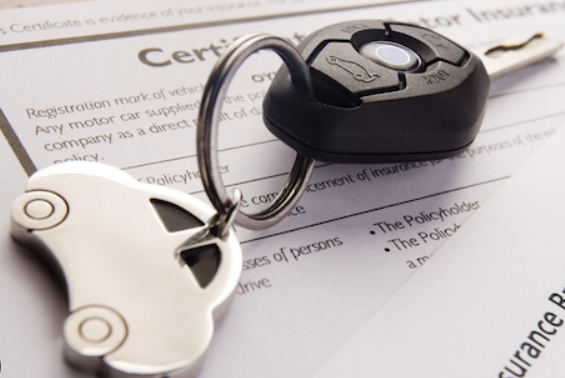
When it comes to protecting your vehicle and ensuring peace of mind, understanding car insurance quotes is essential. A car insurance quote is a personalized estimate of what you’ll pay for coverage based on your individual circumstances. In this guide, we’ll explore the key elements of car insurance quotes, how to obtain them, and tips for securing the best rates.
What Are Car Insurance Quotes?
Car insurance quotes provide an estimate of the cost of insuring your vehicle. These quotes are based on factors like:
- Personal Details: Your age, gender, location, and marital status.
- Driving History: Past accidents, claims, and violations.
- Vehicle Details: Make, model, year, and safety features.
- Coverage Preferences: The type and level of coverage you select.
Each insurance provider uses proprietary algorithms to calculate your quote, which is why prices can vary between companies.
Why Car Insurance Quotes Are Important
1. Understanding Costs
Quotes help you understand how much you’ll need to budget for car insurance.
2. Comparing Options
With quotes from multiple insurers, you can compare rates and coverage options to find the best deal.
3. Customizing Coverage
You can tweak coverage limits and add-ons to tailor a policy to your specific needs.
4. Identifying Discounts
Quotes often reveal discounts you may qualify for, such as safe driving or bundling multiple policies.
How to Get Car Insurance Quotes
Obtaining car insurance quotes is straightforward. Here’s a step-by-step guide:
Step 1: Gather Information
To get an accurate quote, you’ll need:
- Personal details: Name, address, and date of birth.
- Vehicle details: Year, make, model, and Vehicle Identification Number (VIN).
- Driving history: Any recent accidents, claims, or traffic violations.
- Current coverage: Details of your existing policy, if applicable.
Step 2: Decide How to Get Quotes
You can get quotes through:
- Online Tools: Many insurers offer free quote calculators on their websites.
- Comparison Websites: Aggregators provide side-by-side comparisons from multiple providers.
- Agents: Speak with a local insurance agent for personalized assistance.
Step 3: Choose Coverage Levels
Determine the type of coverage you need:
- Liability Coverage: Covers damages to others if you’re at fault.
- Collision Coverage: Covers repair costs for your vehicle after an accident.
- Comprehensive Coverage: Protects against theft, vandalism, and natural disasters.
- Uninsured/Underinsured Motorist Coverage: Covers costs if the other driver lacks sufficient insurance.
Step 4: Compare Quotes
Analyze the quotes based on:
- Premiums
- Deductibles
- Coverage limits
- Additional benefits or features
Step 5: Finalize Your Policy
Once you’ve found the best quote, work with the insurer to finalize your policy.
Factors That Affect Car Insurance Quotes
1. Driving History
A clean driving record typically results in lower premiums. Accidents, claims, or traffic violations can significantly increase your rates.
2. Vehicle Type
Luxury and high-performance vehicles usually cost more to insure because of higher repair and replacement costs.
3. Location
Where you live impacts your rates. Urban areas with higher accident rates and theft risks often have higher premiums.
4. Age and Gender
Younger drivers and male drivers often face higher premiums due to statistical risk factors.
5. Credit Score
In many states, insurers use your credit score to assess risk. A higher score can lead to lower premiums.
6. Coverage Levels
Opting for higher coverage limits and lower deductibles will increase your premium.
Tips for Getting the Best Car Insurance Quote
1. Shop Around
Don’t settle for the first quote. Compare rates from multiple providers to find the best deal.
2. Bundle Policies
Many insurers offer discounts if you bundle car insurance with home or renters insurance.
3. Ask About Discounts
Common discounts include:
- Safe driver discounts
- Good student discounts
- Multi-policy discounts
- Vehicle safety feature discounts
4. Improve Your Credit Score
If possible, work on raising your credit score to qualify for better rates.
5. Adjust Your Deductible
A higher deductible can lower your premium, but ensure you can afford the out-of-pocket cost in the event of a claim.
6. Consider Usage-Based Insurance
Some insurers offer telematics programs that monitor your driving habits. Safe drivers can earn significant discounts.
7. Review Your Policy Regularly
As your circumstances change, update your coverage to ensure it’s still the best fit.
Common Mistakes to Avoid
1. Only Focusing on Price
Cheaper isn’t always better. Make sure the policy provides adequate coverage.
2. Not Comparing Enough Quotes
Getting quotes from multiple providers ensures you’re not overpaying.
3. Ignoring Customer Reviews
Research the insurer’s reputation for customer service and claims handling.
4. Failing to Update Information
Provide accurate and up-to-date information to avoid discrepancies in your quote or denied claims.
Benefits of Using Car Insurance Quotes
1. Cost Savings
Comparing quotes can help you identify the most affordable option without sacrificing coverage.
2. Tailored Coverage
Quotes allow you to customize your policy based on your unique needs and preferences.
3. Time Efficiency
Online tools and comparison websites make it easy to gather multiple quotes quickly.
4. Transparency
Understanding the breakdown of your premium helps you make informed decisions.
Conclusion
Car insurance quotes are a vital tool for finding the best policy at the right price. By understanding how quotes work, knowing the factors that influence rates, and following best practices for comparison, you can secure affordable and comprehensive coverage.
Start your search today by gathering your information and exploring quotes from reputable providers. With the right approach, you’ll find a policy that protects you and your vehicle while fitting your budget.
